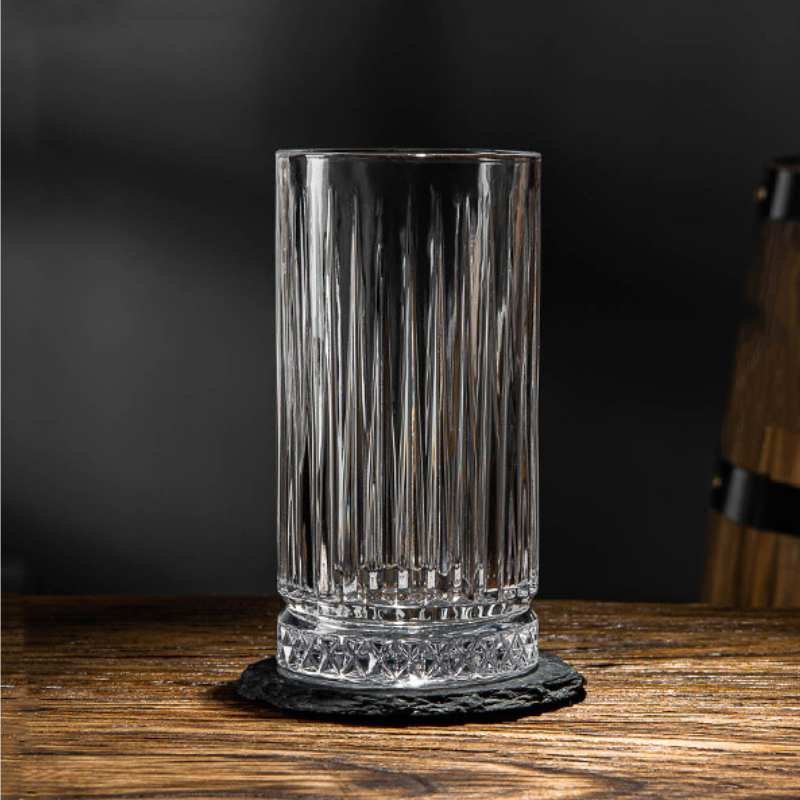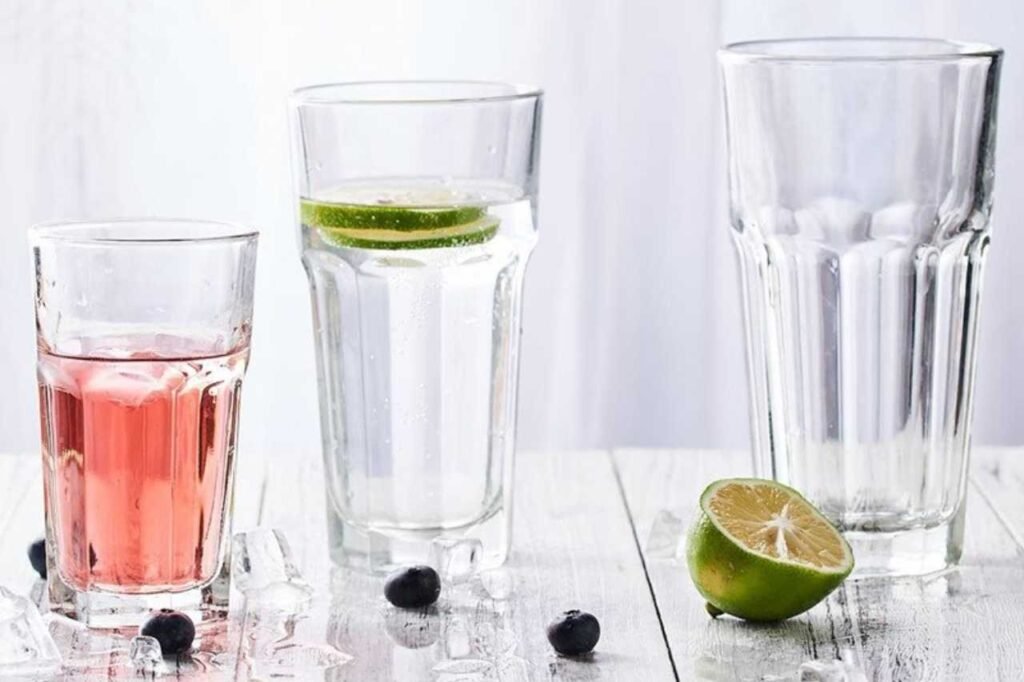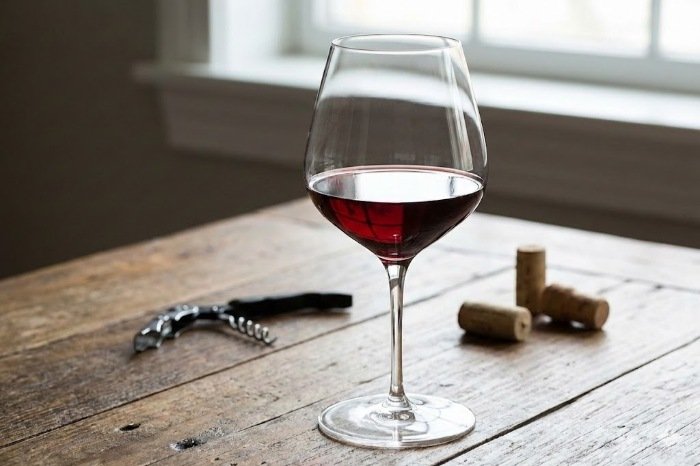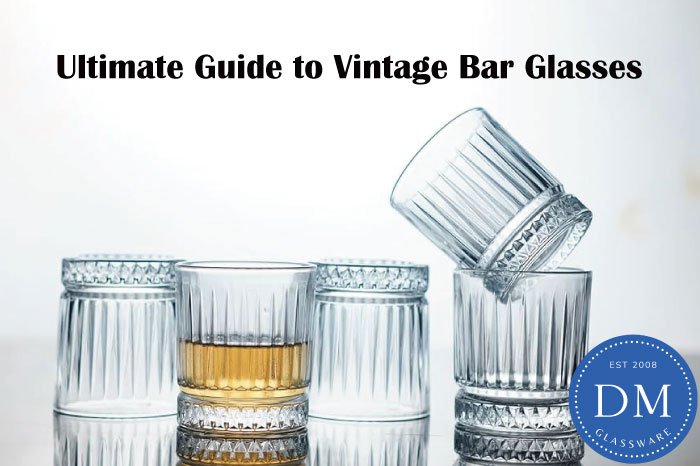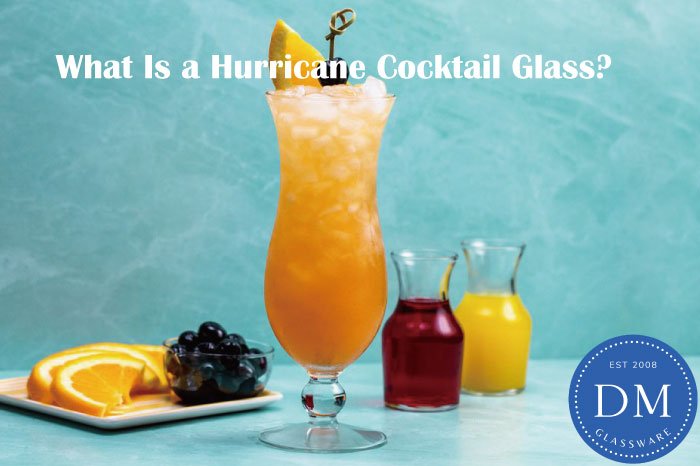
How to Choose Bar Glasses for Cocktails and Mocktails?
Cocktail and mocktail glasses affect how drinks look, taste, and feel. Choosing the right glass can enhance the drinking experience and impress guests. But with so many options, how do you pick the best one?
The best cocktail and mocktail glasses depend on drink type, presentation, and practicality. Classic options like martini glasses suit cocktails, while highball glasses work well for mocktails. Understanding glass types helps make the right choice.
Glass selection is not just about looks. It influences temperature, aroma, and the way drinks mix. Let’s explore how to choose the right glasses for cocktails and mocktails.
Types of Cocktail Glasses?
Cocktail glasses come in different shapes and sizes. Each type enhances a drink’s presentation and taste. The right glass improves the overall experience.
Martini, coupe, highball, and rocks glasses are common choices. Each has a unique design that affects a cocktail’s aroma and balance. The best option depends on the drink being served.
Popular Cocktail Glass Types
| Glass Type | Best For | Features |
|---|---|---|
| Martini Glass | Martinis, Manhattans | Wide rim, V-shaped bowl |
| Coupe Glass | Daiquiris, Sidecars | Shallow bowl, stemmed |
| Highball Glass | Mojitos, Collins | Tall, cylindrical |
| Rocks Glass | Old Fashioned, Negronis | Short, sturdy base |
Choosing the right cocktail glass enhances the drinking experience. The shape controls aroma release, ice melting speed, and presentation.
How to Choose a Cocktail Glass?
Not all cocktail glasses are the same. Picking the right one ensures drinks taste and look their best.
Choose a cocktail glass based on the drink’s ingredients, temperature, and style. Consider size, shape, and durability for long-term use.
Key Factors to Consider
- Drink Type – Spirit-forward drinks work best in short glasses, while mixed drinks need tall ones.
- Glass Material – Thin glass preserves temperature better, while thick glass adds durability.
- Rim Width – Wider rims allow aroma to spread, enhancing flavor.
- Stem vs. No Stem – Stemmed glasses prevent warming drinks with hands.
A well-chosen glass improves a cocktail’s flavor and appearance. It also makes drinking more enjoyable.
What Glasses Are Best for Cocktails?
Different cocktails require specific glasses. The right choice enhances both aesthetics and taste.
Martini, coupe, and Collins glasses are best for cocktails. Their designs balance aroma, temperature, and presentation for an ideal drinking experience.
Best Glasses for Common Cocktails
| Cocktail | Best Glass | Reason |
|---|---|---|
| Martini | Martini Glass | Wide bowl enhances aroma |
| Margarita | Margarita Glass | Salted rim improves flavor |
| Mojito | Highball Glass | Room for ice and soda |
| Old Fashioned | Rocks Glass | Thick base for muddling |
Matching cocktails with the right glass elevates the experience. It ensures each drink tastes as intended.
What Is the Most Versatile Cocktail Glass?
Not all bars have space for many glass types. A versatile option can serve different cocktails well.
The coupe glass is the most versatile cocktail glass. It suits shaken, stirred, and even champagne-based drinks, making it a practical choice for any bar.
Why the Coupe Glass is Versatile
- Ideal for Many Drinks – Works for classic and modern cocktails.
- Balanced Shape – Holds liquid well without spills.
- Easy to Hold – Stem prevents heat transfer from hands.
- Elegant Look – Enhances drink presentation.
A coupe glass is a great all-around option for bars and home use.

What Are the Four Major Types of Glassware in Bartending?
Bartenders use specific glassware to enhance drinks. Each type serves a unique purpose.
The four major types are highball, rocks, coupe, and martini glasses. They cover most cocktails and ensure proper presentation.
Breakdown of Major Glassware Types
| Type | Uses | Common Drinks |
|---|---|---|
| Highball | Mixed drinks | Mojito, Tom Collins |
| Rocks | Strong spirits | Old Fashioned, Negroni |
| Coupe | Elegant cocktails | Sidecar, Champagne cocktails |
| Martini | Classic cocktails | Martini, Manhattan |
Understanding these four types helps in selecting the right glass for any drink.
Types of Mocktail Glasses?
Mocktails deserve the same attention as cocktails. The right glass enhances their look and taste.
Highball, Collins, and hurricane glasses work well for mocktails. They provide space for fruit garnishes and ice.
Best Mocktail Glasses
| Glass Type | Best For | Features |
|---|---|---|
| Highball | Lemonades, iced teas | Tall, fits ice and soda |
| Collins | Fruity mocktails | Slimmer than highball |
| Hurricane | Blended mocktails | Wide bowl for layers |
Mocktail glasses should highlight ingredients while maintaining balance.
What Glasses to Use for Mocktails?
Mocktails require glasses that enhance their colors and garnishes.
Highball and Collins glasses work best. They offer the right space for ice, fruits, and herbs.
Mocktails should be presented beautifully to match their refreshing taste. Choosing the right glass improves the experience.
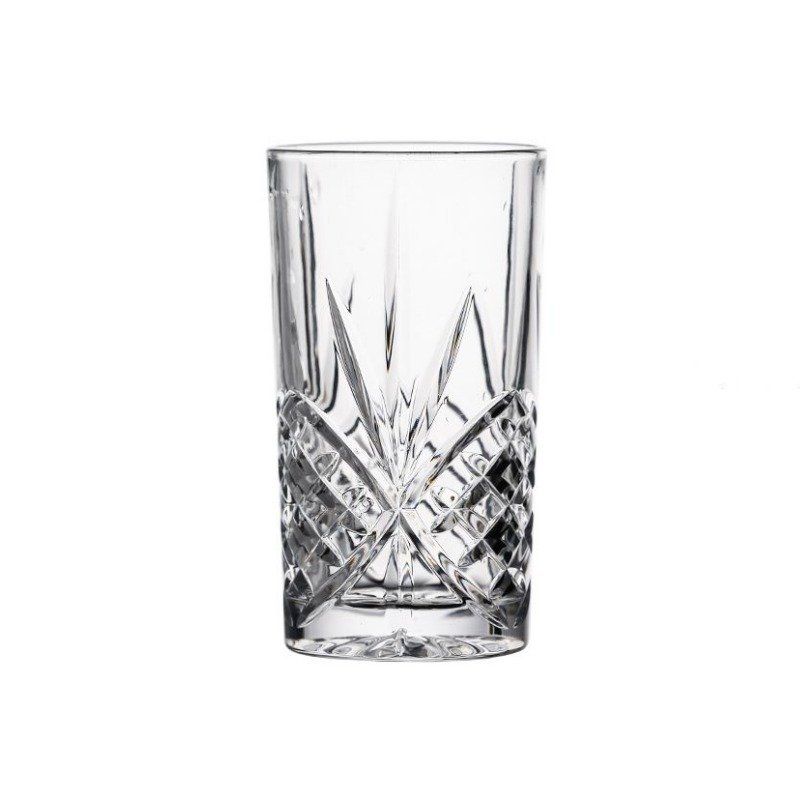
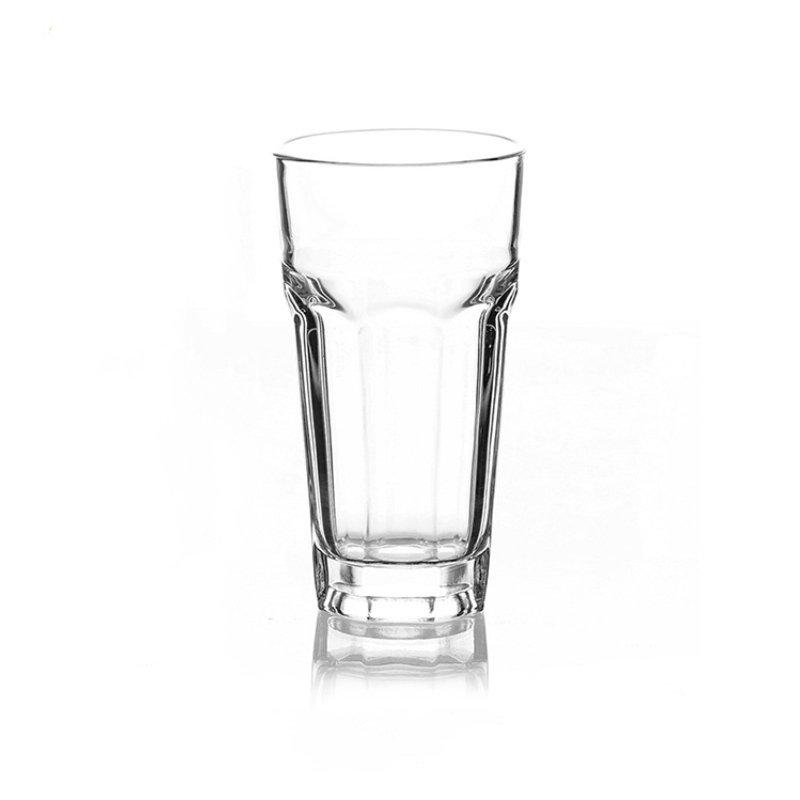
How Can You Tell the Difference Between Cocktail and Mocktail?
Mocktails and cocktails can look alike. The difference lies in alcohol content.
Cocktails contain alcohol, while mocktails do not. Presentation and ingredients may be similar, but mocktails use juices and syrups instead of spirits.
Which Glass is Used for Straight Spirits Like Vodka and Tequila?
Straight spirits require glasses that preserve aroma and temperature.
Shot glasses and rocks glasses are best for vodka and tequila. They allow easy sipping or quick shots.
What Glass is Used for a Mojito?
A mojito needs a glass that holds ice, mint, and soda.
Highball glasses are best for mojitos. They provide enough space for proper mixing and garnish.
Does the Type of Glass Matter for Cocktails?
Yes, glass type affects temperature, aroma, and presentation.
Choosing the right glass enhances flavor and drinking experience.
What Is the Most Popular Mocktail?
Mocktails come in many varieties. Some are more popular than others.
The Virgin Mojito is the most popular mocktail. It is refreshing, easy to make, and widely available.
The Standards of Choosing Bar Glasses: Materials, Shapes, Production Types
Choosing the right bar glass is more than just selecting a stylish design. The quality of a glass depends on three key factors: materials, shapes, and production types. Each of these influences durability, functionality, and the drinking experience.
1. Materials: What Makes a Good Bar Glass?
The material of a glass affects its clarity, durability, weight, and thermal properties. High-quality glassware enhances the presentation of drinks and ensures longevity.
Common Materials Used in Bar Glassware
| Material | Features | Pros | Cons |
|---|---|---|---|
| Soda-lime Glass | Most common type, used for everyday drinkware | Affordable, easy to produce | Less durable, prone to scratching |
| Crystal Glass | Contains lead or lead-free minerals, enhances clarity | Brilliant shine, thin yet strong | Can be more fragile, requires hand washing |
| Tempered Glass | Heat-treated for extra strength and durability | More resistant to breakage | Can be heavier, sometimes less clear |
| Borosilicate Glass | High thermal resistance, often used in premium glassware | Withstands temperature changes, lightweight | Can be more expensive |
| Recycled Glass | Made from repurposed glass, eco-friendly | Sustainable, unique textures | May have slight imperfections |
How to Choose the Best Material?
- For high-end bars and fine dining: Crystal glass is ideal due to its brilliant clarity and elegant feel.
- For busy bars and restaurants: Tempered glass is the best option because it is shock-resistant and durable.
- For eco-conscious brands: Recycled glass provides a sustainable choice while still maintaining quality.
A well-chosen material ensures a glass is both visually appealing and functional for long-term use.
2. Shapes: Why Does the Shape of a Glass Matter?
The shape of a bar glass is not just about looks—it directly affects the aroma, temperature, and taste of a drink. Different drinks require different glass shapes to enhance the drinking experience.
How Shape Influences Drinks
| Glass Shape | Effect on Drink | Best for |
|---|---|---|
| Wide Bowl | Enhances aroma by allowing more surface area | Wine, brandy, cocktails like margaritas |
| Tall and Narrow | Preserves carbonation and directs aroma to the nose | Champagne, highball cocktails, sodas |
| Short and Sturdy | Ideal for strong, spirit-forward drinks | Whiskey, Old Fashioned, Negroni |
| Curved Rim | Directs liquid smoothly to the mouth for better taste | Martini, coupe, daiquiris |
| Tapered Opening | Concentrates aroma, improving taste perception | Scotch, cognac, whiskey |
Why the Right Shape Matters?
- Cocktails with strong aromas (like a margarita or brandy) benefit from wide bowls that allow scent to expand.
- Carbonated drinks (like champagne or gin and tonic) stay fresh longer in narrow glasses.
- Spirit-forward drinks (like whiskey and scotch) taste better in tapered glasses that concentrate aroma.
Choosing the correct shape enhances flavor, texture, and overall drinking pleasure.
3. Production Types: How Glasses Are Made
The way a glass is manufactured affects its durability, weight, and overall quality. There are three main types of production methods used in bar glassware:
Hand-Blown Glass
- Made by artisans using traditional glassblowing techniques.
- Pros: Unique, high-quality, artistic designs.
- Cons: Expensive, takes longer to produce, may have slight imperfections.
- Best For: Luxury and fine dining settings.
Machine-Made Glass
- Mass-produced using automated processes for uniformity.
- Pros: Consistent size and shape, affordable, high efficiency.
- Cons: May lack the finesse of hand-blown glass.
- Best For: Restaurants, bars, and bulk orders.
Pressed Glass
- Created by pressing molten glass into a mold.
- Pros: Extremely durable, thicker walls, cost-effective.
- Cons: Less refined look, heavier than blown glass.
- Best For: Casual dining, high-traffic bars, and outdoor events.
Which Production Type is Best for Your Needs?
- For fine dining or upscale events: Choose hand-blown glass for its elegance.
- For high-volume bars and restaurants: Opt for machine-made glass for consistency and affordability.
- For casual settings or heavy use: Pressed glass provides the best durability and longevity.
Final Thoughts on Choosing Bar Glasses
A high-quality bar glass should meet these three standards:
- Material: Durable, clear, and suitable for its intended use.
- Shape: Enhances the aroma, taste, and presentation of the drink.
- Production Type: Matches the needs of the business in terms of durability, aesthetics, and cost.
By understanding these factors, you can select the perfect glassware that enhances drinks, impresses guests, and supports business needs.
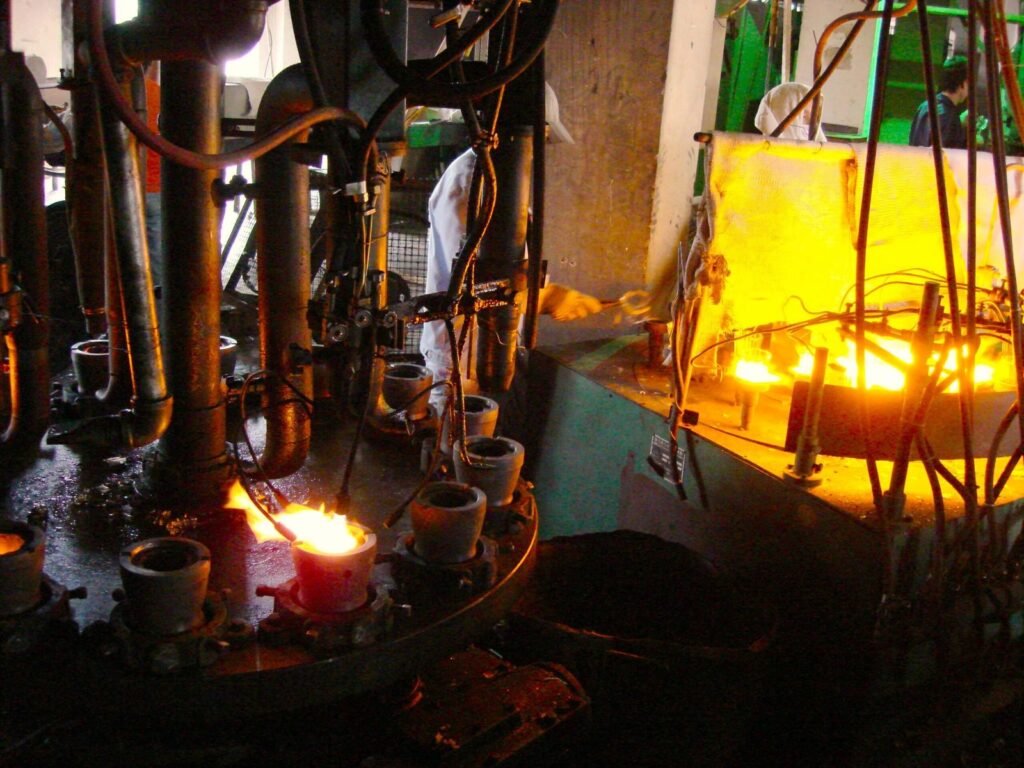
How to Customize Bar Glasses for Business?
In the hospitality industry, every detail matters. From the ambiance to the presentation of drinks, branding plays a crucial role in shaping customer experience. Custom bar glasses are an effective way to enhance brand identity, improve customer engagement, and create a lasting impression. Whether you run a bar, restaurant, hotel, or event business, customizing glassware can add a professional and unique touch to your service.
Why Customize Bar Glasses?
Customization goes beyond aesthetics. It is a strategic branding tool that benefits businesses in several ways:
- Brand Recognition: A logo or engraved name on glassware reinforces your brand every time a customer takes a sip.
- Professional Appearance: Custom glasses elevate the overall presentation, making your establishment look more polished and premium.
- Memorability: Unique glassware enhances customer experience, increasing the chances of return visits and recommendations.
- Marketing Advantage: Personalized glasses often appear in social media posts and promotional materials, giving your brand additional exposure.
- Exclusive Identity: Custom bar glasses create a distinct identity, setting your business apart from competitors.
Ways to Customize Bar Glasses
There are various customization techniques available, depending on the design, durability, and budget.
| Customization Method | Process | Pros | Best For |
|---|---|---|---|
| Logo Printing | A logo or design is printed on the surface of the glass. | Affordable, fast production, vibrant colors | Promotional events, branding |
| Laser Engraving | A high-precision laser etches designs onto the glass. | Elegant look, permanent, doesn’t fade | Upscale bars, fine dining |
| Frosted Etching | Creates a frosted effect using acid or sandblasting. | Classy, subtle, long-lasting | Hotels, luxury brands |
| Full-Color Decals | Detailed images or logos applied as heat-transfer decals. | High detail, eye-catching | Custom-themed events, beer and cocktail bars |
| Gold/Silver Rim | Metallic accents are applied to the rim of the glass. | Luxurious look, adds sophistication | High-end restaurants, weddings |
Each technique serves a different purpose. For businesses looking to promote their brand on a budget, printed logos and decals are cost-effective choices. For upscale establishments, engraving and gold/silver rim accents provide an elegant, long-lasting touch.
How to Choose the Right Custom Glass for Your Business?
Custom glassware should be both functional and visually appealing. Here’s how to choose the right one:
- Consider the Drink Type – Whiskey glasses, cocktail glasses, and beer mugs require different shapes and designs.
- Focus on Durability – Choose a high-quality glass material to withstand frequent use.
- Match Your Brand Style – A luxury hotel may prefer engraved glasses, while a craft brewery might choose bold printed designs.
- Think About Bulk Ordering – Ordering in bulk ensures consistency and reduces costs per unit.
- Ensure Easy Maintenance – Glasses with durable customizations (like engraving) require minimal upkeep compared to printed designs.
How to Order Custom Bar Glasses in Bulk?
Bulk ordering allows businesses to get high-quality glassware at a lower cost while maintaining consistency across their inventory. Here’s a step-by-step guide to ordering custom glasses for your bar or restaurant:
- Define Your Needs – Determine the number of glasses, preferred customization method, and budget.
- Choose a Reliable Manufacturer – Work with an experienced glassware manufacturer that specializes in custom orders.
- Select Glass Types and Customization Style – Decide on the shape, material, and branding method.
- Request Samples – Before placing a large order, ask for samples to check quality.
- Place a Bulk Order – Finalize the design and place the order with your manufacturer.
- Confirm Quality Standards – Ensure the glassware meets durability and customization expectations.
Why Work with DM Glassware for Custom Bar Glasses?
At DM Glassware, we specialize in high-quality, customizable bar glasses for B2B businesses. We offer a wide range of glassware solutions, including logo printing, engraving, and special designs tailored to suit your brand identity.
What We Offer:
- Extensive Glassware Collection – From whiskey tumblers to cocktail glasses, we provide a variety of glass types for all drink styles.
- Premium Customization Services – We offer logo printing, laser engraving, frosted etching, and more to fit your branding needs.
- Bulk Ordering & Competitive Pricing – Our production capacity ensures high-quality glassware at affordable wholesale prices.
- Fast and Reliable Delivery – With an efficient supply chain, we fulfill bulk orders quickly for international clients.
- Eco-Friendly & Durable Materials – Our glasses are made from high-quality, sustainable materials that last longer.
Boost your brand’s visibility and enhance customer experience with custom bar glasses from DM Glassware. Contact us today to discuss your customization needs and place an order for premium, branded glassware!
DM Glassware is providing custom glasswares for various occasions.
Our main products are machine-made glasswares, glass cups, glass drinkwares and tablewares for home and kitchen use. Such glasses like glass tumblers, glass mugs, whiskey glasses, shot glasses, glass candy jars, glass bowls, beer glasses, etc.
We also recommend the most suitable packaging method based on different sales types, such as different display boxes, adding stickers, tags, etc.


